.jpg)
The entire time I was chief executive officer at NBC and at Autism Speaks, my wife, Suzanne, was the chief passion officer. She threw herself into everything with tireless vigor, determination, and humanity. They became her calling cards in redefining the role of corporate wife, launching a global crusade for autism, and finding treatment for our grandson, Christian. Suzanne was never dull or obscure or reticent. That made her my perfect alter ego and confidant. Grounded in shared values and invigorated about achieving our loftiest goals, our 48-year marriage has been a true, enduring partnership.
I think of it this way: We are traveling down a divided highway. I’m in the left-hand lane and she’s in the right-hand lane. And you need both lanes to complete the journey and to win. I’m in the lane of crafting the organization structure, getting the fundraising, pulling together the pieces like any good chief executive. But somebody has to be the chief passion officer, and that’s the lane she’s in. The term sounds so inadequate because Suzanne actually accomplishes her passion. A lot of passionate people never see their wonderful ideas become reality. They don’t know how or they are just not lucky that way. Or they don’t want to risk controversy or criticism for what they believe in. She does.
Whether it was making NBC a family or Autism Speaks a distinctive cause, Suzanne was the emotional, passionate heart and soul of everything she touched.
◆ Bob Okun, Washington lobbyist Autism Speaks and former VP NBCU. Intellectual curiosity and passion are essential ingredients in the Wrights’ partnership, which was crafted at NBC, tested by autism, and bloomed. Bob’s secret weapon is Suzanne; she is an absolute force of nature. When the word got out she was visiting Capitol Hill, most veteran senators and congressman ran for cover. ◆
If I were back in business, I would have said that her chances of accomplishing what she set out to do at Autism Speaks would have been slim to none. She just made it happen! There’s an excitement about it, and she keeps coming up with ideas. And I silently keep saying to myself, “You’re killing me!” But she’s just what we need—what I need. And she never stops or gives up. Suzanne will get on the phone and start calling people endlessly until she gets something going. She taught me that it was worse to not try than to fail. All of my adult life, Suzanne has been the spark and driving spirit behind every success.
One thing I know for sure—you never forget where you came from when the people who champion your values and passions are by your side.
◆ Brian Kelly, real estate developer, Autism Speaks successor CEO, founding Autism Speaks board member, and parent of autistic child. The Wrights’ impact as a couple cannot be overstated. She made him a more well-rounded CEO; he made her a smarter advocate. I do not think that either of them could have accomplished individually what they have together. They complement each other’s strengths, like the yin and yang. Together, they are the whole package. Shaping a corporate family at NBC for 2 decades was one thing. But committing themselves and their time, emotional energy, and resources to supporting the cause of autism is quite extraordinary. It is easy to write a check, but it’s another thing to devote your life to something. ◆
◆ Suzanne Wright. When I was 16 years old, I worked part-time in menswear at Abraham & Straus. One of my pals there was a stock boy named Jim Beale. When Jim asked me to his junior prom at Holy Cross, an all-boys’ college, I had no way to know it would change my life. At the prom, Jim introduced me to his friend Bob Wright. My mother, on her deathbed, said she couldn’t believe she let me take the Greyhound bus to Worchester, Massachusetts, for that prom weekend. I was a junior in high school.
I fell in love with Bob immediately. There was something very different about him. He was so smart, so kind, and had extraordinary integrity. Bob was always the quiet intellect, the classy guy who never blew his own horn. I remember one time I said to my dad, “Oh, my gosh, Dad. Bob’s so wonderful.” And my dad looked at me and said, “Suzanne, he doesn’t have a chance!”
Bob and I dated for about 3 years while he attended the University of Virginia Law School. We became engaged in the basement of my family’s home in Queens, New York. I was having a good-bye party in our basement for all of my friends who were returning to college that fall. During the party, my brother, Dennis, came downstairs and handed me a package he said he found out in the street. I wanted to get rid of him because Dennis was 10 years old and I didn’t want him bothering me and my friends. But he insisted I open it. And I did, and it was the diamond ring! My father was up at the top of the basement stairs laughing because Bob had just asked him for my hand in marriage. And that was how we became engaged. The next day Bob and I were at the church to set a wedding date.
After we were married on August 26, 1967. We spent the first year of married life in Charlottesville, Virginia, where Bob worked as a waiter while he was studying for the bar exam and I worked as a receptionist. When Bob passed the Virginia bar exam, my mom and dad came down with a U-Haul truck to move us to New York, where Bob studied for the New York bar exam. The Vietnam War was raging and Bob’s student deferment ended when he graduated law school. That’s when Bob passed the New York bar exam and joined a US Army Reserve unit. He was sent off to Fort Polk, Louisiana, for basic training. Our first child, Katie, was born December 20, 1968. Bob had a very nice job offer from GE and its plant at Pittsfield, Massachusetts, which allowed him to connect with his reserve unit he was assigned to at Utica, New York every month. That’s how we started at GE.
When my parents drove us to Pittsfield, we literally took a drawer out of my father’s bureau and put it in the backseat of the car, and I put our newborn, Katie, in that drawer, and I sat with her there. We drove up to the house we rented. I remember my parents couldn’t wait to get out of there because of the snow that never seemed to stop. And that’s how we started our life as a little family together. Bob worked very hard and he took and passed the Massachusetts bar exam in our early days in Pittsfield. ◆
◆ Katie Wright. My father grew up with a mom who had very high expectations and demanded the best grades and the best behavior from my dad—which I am sure he found annoying as a child. But it meant he was never threatened by a strong woman, so he wasn’t threatened by a woman like my mom, who is very outspoken and expected to be a full partner—not a stereotypical wife of the 50s and 60s. I think he was progressive for his time in choosing a mate who was more of a partner.
They work together as a team. My dad never thought his success was totally due to him. I don’t think you see many corporate executives comfortable with their wives being in the spotlight and outshining them. My mom has always been way more outgoing and extroverted, and a lot of men would be intimidated by that.
I think that a lot of people in business thought my dad was just kind of a boring guy because he’s still married to his one and only wife. ◆
◆ Vera Myer, VP research NBC and longtime friend. I started at NBC in 1967 and retired in 1997 at age 70. I knew all the CEOs, and Suzanne was the only wife of a CEO who really got involved. No one had ever seen anything like her. She remembered birthdays, engagements, and new babies. She knew many people, especially other women, and she made sure they were recognized. The NBC pages were very afraid of her because she wanted them to be very nice to everybody who came in. They used to have a picture of her posted in the pages’ room to be sure that everybody paid attention when she was there.
I often went along with Suzanne on her projects. One of her early projects was giving musical instruments to a high school in the Bronx that was in a horrible neighborhood. It was so bad that our NBC driver refused to take us any farther. So Suzanne and I got out of the car and started walking down the street. She’s in her high heels with lots of gold jewelry and it didn’t bother her in the least. We would go back periodically to hear the students play, until someone stole their instruments. ◆
◆ Lisa Myers, correspondent NBC News. Suzanne made it her business to regularly meet with the women of NBC News at her apartment or at a small social gathering, to hear about our projects and concerns and support us where she could. I did a controversial interview with Juanita Broaddrick during the Monica Lewinsky business in Clinton’s second term. I talked to this woman off the record for a year before she finally agreed to sit down and do an interview in the middle of the Clinton impeachment proceedings.
It was explosive. People within NBC News were so freaked out they wanted to kill the story without ever looking at the tapes. Friends started wearing “Free Lisa” buttons, and protesters outside the White House carried posters reading “Free Lisa.” Fortunately, I had the late Tim Russert on my side. It finally aired when Bob Wright got involved. The next day I got flowers from the Wrights with a handwritten note from Suzanne saying “Good job!” That kind of support and camaraderie meant everything when you were clearly outside the boys’ club. ◆
◆ Suzanne Wright. After our three children went off to school, I wanted to go to college. And I didn’t want anyone at NBC to know about it, so I used my maiden name. I wanted to do it on my own. It took me 7 years at Sarah Lawrence, a liberal arts college in Yonkers, New York, until I was outed when Vanity Fair magazine did an article about Bob.
Bob would read my papers and the kids would help me with the research. I loved it, but it was torture to get through. You know, I give Bob a lot of credit; he was as determined as I was that I would finish. When I graduated, Bob gave Sarah Lawrence a very big check and they named the Suzanne Werner Wright Theater after me. Now I have four honorary doctorate degrees. It’s hysterical! ◆
I developed a great deal of confidence after I passed four bar exams and was admitted to practice in Virginia, New York, Massachusetts, and New Jersey in 4 years. Only Suzanne would have put up with that disruption. So when Suzanne said she wanted to return to school to earn a college degree, I wanted to do everything I could to support her. Suzanne went through a long and difficult process to get her degree from Sarah Lawrence. I was so proud. I believe it gave her added confidence for everything she did from that day forward. She would be able to take on the world! I experienced that hard-won exhilaration years earlier.
I took my first bar exam shortly after we were married in 1967 as a third-year student at University of Virginia. I took my second bar exam for New York state in the summer of 68 just as I was going into my military service. I took my third bar exam for Massachusetts in the winter of 1969. The written notice that I had passed came with an unexpected request to appear at the bar examiner’s office early on the day of my admission ceremony. Suzanne and I drove to Boston with a lot of apprehension. Did I make a mistake filing my papers? Did I screw up some part of the test?
The bar examiner’s office was on the second floor of a walk up in a back bay townhouse. Suzanne waited downstairs in the only chair available and I went up to meet the examiner. He asked me what I thought of the exam and how it compared with the Virginia and New York bars. Seeing that I was visibly nervous, the examiner told me I had one of the highest scores ever achieved on the test. I was so excited I could shout for joy! Suzanne and I treated ourselves to a fine Boston lunch before the courthouse for the admissions ceremony. Eighteen months later I took the New Jersey bar exam. That whole experience provided me with a great deal of confidence about my own ability and about the profession. I was ready for anything!
◆ Donald Trump. I think that Bob and Suzanne Wright are truly one of the great couples. She is a dynamic, incredible woman who is totally for her husband, which is both new school and old school. And when their grandchild was diagnosed with autism, it turned out to be a blessing in disguise, because they’ve been able to help so many people. ◆
◆ Cheryl Gould, VP NBC News. Suzanne was a real cheerleader for women breaking new ground. She did it in her own personal way, without fighting the GE or NBC stratospheres. She treated the women of NBC News that she came to know and respect as girlfriends. She made us feel like we were part of a corporate family in which there was no sure gender equality.
Suzanne was just so generous with her time, spirit, and money. When someone was in trouble or a family member was ill, she was right there asking what she could do to help and then following through. You didn’t have to ask. She truly believes if you can be positive and laugh and love, your life is going to be better.
Suzanne and I first met during a trip to China in the 80s for a week of live broadcasts for The Today Show and Meet the Press. I saw her with the troops, reaching out to them in her own way while being at Bob’s side. Bob is kind of shy; he gets right to the point and talks business. Suzanne is the soft side. They are on parallel tracks, hand in hand. They finish each other’s sentences. It’s a true love story. They are a great example of how to use your skills and apply what you’ve learned in the business world in a totally different way to do good. It is a very good model for many of us looking to write the next chapter in our lives. ◆
◆ Andrea Mitchell, anchor and correspondent NBC News, Washington, DC. Suzanne always took a strong interest in our welfare, which wasn’t easy in an all-boy network. There was a long period when we had extreme budget cuts and we didn’t have a Christmas party. Well, Bob and Suzanne would come down and host a holiday party for the Washington bureau. They always made the news division feel it was important to the company. There were times when we all were deeply affected by our coverage in Iraq and the Middle East, when we lost colleagues and suffered devastating blows. And the Wrights and Tom Brokaw very much held us together. ◆
The Today Show
New York City
February 25, 2005
◆ Elena Nachmanoff, VP NBC News talent. The first time Bob and Suzanne went on television to announce the formation of Autism Speaks, Suzanne had not done much public speaking. But I remember the camera went to her and she said, “I’m a mother and I’m a grandmother. For the thousands of people out there whose families are affected by autism, I’m one of you. I’m going to be your champion.” And I saw her bloom before my eyes. I already looked up to her because she was such a force at NBC for families and for giving back and for making people’s lives better. I saw all the pain and suffering that she felt, for herself and for her family, directed into a single purpose and mission. She marshaled all of her energies and came out of her shell. The public persona of Suzanne Wright was born that day on The Today Show. ◆
◆ Harry Slatkin, entrepreneur and philanthropist, parent of an autistic child. Mothers are important because they are in the center of things, holding it together, advocating, and that’s what it’s all about. Suzanne and Bob as a team are inseparable and invincible. You can’t refuse the two of them. Suzanne’s a real dinger. She’ll pound you and hound you until you can’t say no to her. She takes a lot of criticism from a lot of other places; some of it is OK and some of it isn’t. The beauty of it is when she hits something and it really is right on—you pick it up and do something about it—that’s worth all the efforts that didn’t work out, and it really makes a difference. That’s why I keep doing this. ◆
It’s been interesting to watch Suzanne grow as a confident leader. We still discuss many things, and I will offer my recommendations about how to proceed. But she generally goes off and does what she believes is best. She looks more to me for advice rather than to fix the problem. While she doesn’t have a formal business background, Suzanne has great instincts and is extremely aggressive about the objective that she is trying to reach. Sometimes she encounters different personalities and people who are tricky, and she likes to take them on. She’s just wonderful with this.
There is almost nothing Suzanne won’t try to advance the cause. Imagine calling up someone at the United Nations and advocating for a World Autism Day because the condition is so serious and prevalent you want to see global recognition, and you draft Middle Eastern countries as sponsors. Who else does that?!
Lots of people work for us at Autism Speaks, but not one of them has the emotional passion that she does, because it is hard to find. In business, it’s dynamite if you have somebody like that working with and for you. That enables you to really do things quickly. This is one of the reasons why we are so successful with Autism Speaks, and it’s what has won us support from so many countries, the United Nations, the World Health Organization, and other important NGOs. It’s her creation.
◆ Elena Nachmanoff. Bob and Suzanne individually could have done anything in their lives and succeeded. But together, they have the same moral compass and huge generosity of spirit that enables others and makes things happen.
They were never drive-by people. They were always in it from the beginning to the end. They wanted to make sure everyone had time with them, had a conversation, and felt involved. I think that is a unique skill. Who didn’t look forward to one of her incredible notes with the flamboyant handwriting and heartfelt words in bright felt-tip pen?!
For every event, whether it was just one night or the entire Olympics, the hardest-working people were Bob and Suzanne. She would be up at the crack of dawn, greeting the people at breakfast until the last person would go to sleep. She would go around at every party, meet everyone. She never missed anything. Every year she would bring Make-A-Wish kids onto the ice at Rockefeller Center just as the Christmas tree was lighting up there. When Brandon Tartikoff was in that car accident with his young daughter Calla in January 1991 near Lake Tahoe, Nevada, the Wrights were on the next plane out there. They stayed by Brandon’s side and his daughters and wife, Lilly. They just didn’t stop in for a day or send flowers and a note.
The same thing with the terrible tragedy of young Teddy Ebersol, who was killed in a plane crash near Telluride, Colorado, in November 2004. His father, Dick Ebersol, the president of NBC Sports, was critically wounded but pulled from the wreckage by his college-aged son, Charlie. The Wrights were on the next plane in 2 seconds flat. There was a problem with the wreckage, and I remember Bob telling Randy Falco to go to GE for whatever they needed for Dick and his family. Suzanne was even looking out for Dick’s assistant, Amy, because she knew how devastating it was for her. When you have Suzanne and Bob thinking clearly for you in a tragedy like that, you can just be in your state of shock and raw emotion, and you know they’re taking care of everything else. What a gift.
When NBC News Iraq war correspondent David Bloom suddenly passed away in April 2003, Suzanne made sure his family had what they needed—right down to someone making meals, babysitting, and cleaning the house. Suzanne thought of every detail. She didn’t miss a thing and followed up on everything. She helped arrange David’s funeral at St. Patrick’s Cathedral in New York City during Easter week and then a reception at the Metropolitan Club. She organized a group of about 20 of us from NBC and from the Catholic schools and churches to help write the thank-you cards on behalf of the family.
Anyone who knows Suzanne is not surprised all of this morphed into what she does at Autism Speaks. She was like Robin Hood, using Bob’s and NBC’s platform for good. That is not just being a corporate wife, but being a woman in her own right who found her own voice and her own calling in the most unlikely places. ◆
◆ Mark Roithmayr, first president Autism Speaks (until 2012). A community member once told me that because of the Wrights, families with autism no longer see themselves on a deserted island trying to make fire. Maybe that’s because they have been there. ◆
◆ Katie Wright. My parents were so devastated at first about Christian. I really admire them because so many of my friends’ parents mourned and grieved, but they were paralyzed. Most had a terrible time handling it. But my mom and dad just jumped right in to do what they could and what no one else would do. I always felt really lucky. I was really surprised about how quickly my mom brought together the international stuff and got so many other countries involved.
When she first told us about what she wanted to do with a World Autism Day I thought, “OK, Mom, good luck with that!” I didn’t honestly think that she’d be able to pull it off. I remember the first time actually going to the UN on World Autism Day and sitting there and thinking, “Wow! We really did it. There’s my mom and my dad on the stage at the UN, and I’m looking around a jam-packed room of people who can begin to make good things happen.” My parents taught me, “No excuses. Don’t blame other people. Don’t take the easy way out—only one right way. You have to do the right thing—easy or not.” They raised me to believe that anything is possible. ◆
◆ David Glazer, Google Genomics director of engineering. The way the Wrights work together is quite an impressive thing to watch. Their hit ’em high, hit ’em low style of dealing with people is just the outward show. There are plenty of little things. After we briefly met at an Autism Speaks charity gala, we got a nice thank-you note from Suzanne. It’s just one of those things that feels slightly quaint and antiquated in today’s world, and boy, does it matter! It is both a genuine, warm act of affection and an effective tactic. They’re both good at it and very real. ◆
◆ Liz Feld, president Autism Speaks (2012 to present). Suzanne gave me some great advice: never hire someone for a senior position you haven’t had dinner with. You learn a lot about people that way, watching their manners, how they treat other people, how do they treat the waiter. Do they sit up straight? How do they eat their food? If they’re going to be a public face for the organization, it’s important to see these things.
After Bob offered me the job as President of Autism Speaks, but before it was announced, I attended one of our charity events at the Winged Foot Golf Club in Westchester, New York. During the evening reception, Bob came up to me and very quietly walked me off to the side. “You know, there are three important ingredients that will make you successful,” he said. “You need passion, good judgment, and poise. Poise is all about timing, and that’s something you get better at the longer you’re in leadership.” I was not only inspired but grateful for the advice. It was wisdom, pure and simple. I wrote those three things down on a little piece of paper that stays pinned to the blotter in my office. I put the three points in different colors and protected them with a coat of clear Scotch tape, and they have been sitting there ever since. ◆
◆ Suzanne Wright. Some things are just meant to be. Bob was diagnosed with Merkel cell cancer in 2000, and the doctors gave him 7 months to live. We were at Sloan Kettering for his surgery, and the doctors told us they thought they had got it all out and would know for sure in about a week. And unbeknownst to me, Cardinal Egan had asked the pope to pray for Bob. So I said to the doctors I was appreciative for everything they had done, but I was going with the cardinal because he reports to the pope, and the pope prayed for Bob.
My mother on her deathbed said she was sure Bob survived that terrible cancer because he would need to be there for autism. At the time, we didn’t even know what it was. We always considered Bob’s triumph over a near-death experience to be a sign that God meant him to do some other important work, and that turned out to be Autism Speaks. His law practice and GE and NBC experiences and everything about our marriage was leading to this. This is the culmination of the work he needed to do on earth. ◆
I was far from home and my family September 11, 2001, when terrorists flew commercial jets into the Twin Towers in New York City, killing thousands of victims. I watched in horror as the surreal events unfolded on television in my hotel room in Long Beach, California. The only familiar voice was Today Show host Katie Couric, struggling to keep composure and calm when the plane hit the first tower. It was still dark before sunrise as I dressed to host a meeting of 200 GE sales people. And I felt the same despair and hopelessness as so many Americans. My first instinct was to call my family. My son Chris, who was just beginning his career at Goldman Sachs, told me he could see the tower on fire from his office, and I told him to get out of that building as fast as he could and go north. I tried to call my wife Suzanne, who was also in New York, but at that point all cell phone calls to NYC were halted. At that moment I did what so many did that day. I prayed and cried and longed to be with those I love.
I had flown to Long Beach in a GE corporate jet, which was parked at John Wayne airport. I immediately called Jeff Immelt, who was in Seattle at a GE Business meeting. He told me that US airspace for general aviation was shut down and that we were both stranded. He was trying to get GE mobile power generation equipment, and other resources and personnel to New York City. I suggested making a $1 million gift to the city to start a fund for relief assistance. For the next hour my communication with my family in New York was by text message on my BlackBerry. My son sent me a message that he was walking home to his apartment on 68th Street on the west side because there were no cabs or buses or any form of transportation available. At one point he told me that he could see the collapse of the first tower as he was making his way north. Suzanne had left a breakfast in Midtown and immediately walked to Central Park. Her father, a long-time New York cop, had always said the park would be the safest place to be if there was a dangerous situation in the city.
When I was finally cleared to leave Long Beach, I opted to hop a chartered flight with 70 Novartis pharmaceutical employees returning to New York City so that the GE corporate jet I would have flown in could take Australian riggers to New York to install gigantic power generation equipment for GE. I told the pilot to load up on food and beverages for the rugged outdoorsmen, who consumed everything in sight! When I returned to 30 Rock, I went with Jeff Immelt to make our way downtown to see GE mobile power generators operating and our NBC News teams on the job everywhere we turned. These mobile trailers were providing emergency power to hospitals, temporary patient centers, relief and rescue locations. I was never more proud of GE, its people, and its power to mobilize help when it was really needed. It was the beginning of an incredible outflow of generosity from corporations and individuals to form an enormous relief fund for the families and victims of 9/11.
The Wright family home
Palm Beach, Florida
April 19, 2015
Suzanne and I call this Paradise. It is the place we come to rest and recharge our batteries, especially in the cold-weather months. Sometimes I think I’d just as soon relax on our sunny veranda in Palm Beach, where the inlet waters lap up to our backyard on their way to the open Atlantic. Breathing deep and slow without anywhere to go is like a holiday for us. But it is not our nature to retire, especially when there still is so much to do. Besides, Suzanne wouldn’t hear of it.
Life has been such a whirlwind. Autism Speaks became bigger and more demanding than we originally imagined. But how could we not have done it, considering the good that has come of it? The 10th anniversary of Autism Speaks prompted a lot of reflection. Even though our whole-genome sequencing project with Google will bring us closer to the answers about treatment and cause, there still is much to do in research, with legislation, and capitalizing on our grassroots strength and resources. But we would not have come this far without Suzanne pushing. None of it could have happened without Suzanne.
I’ve never been much for scandal. I have been married to Suzanne Warner Wright for nearly half a century, and we have three children and six grandchildren. Some of the most important days of my life have been family events tucked in between the scores of business meetings and obligations in my day calendar. I still consider myself a working stiff who has taken his notable accomplishments in stride and been humbled by forces of science, nature, and medicine that I cannot command. I would give up the good-life trappings if it meant finding ways to help people with autism lead fuller, richer lives.
In business everything is measured. You try to get your mission as tight as you can, measured and executed. In the end, the shareholders hold you accountable. You show up, do your best under pressure, take your lumps, and reap your rewards. Through these all-consuming, exhausting crusades, Suzanne has been my north star. She has been by my side through it all, sharing the load, being my reality check, my sounding board, my friend, my love—and the spark that made all the difference.
.jpg)


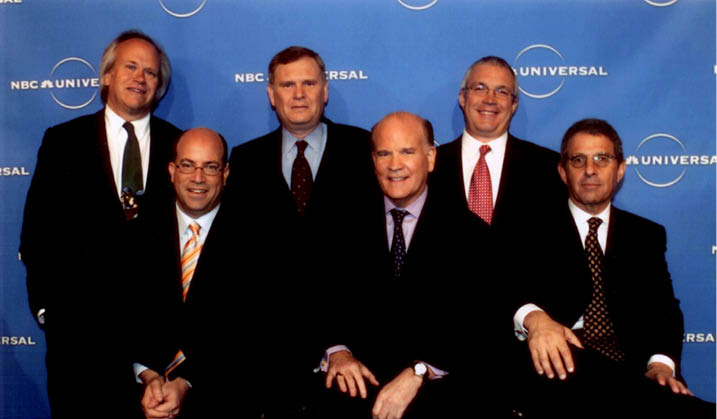
_chapter_18.jpg)
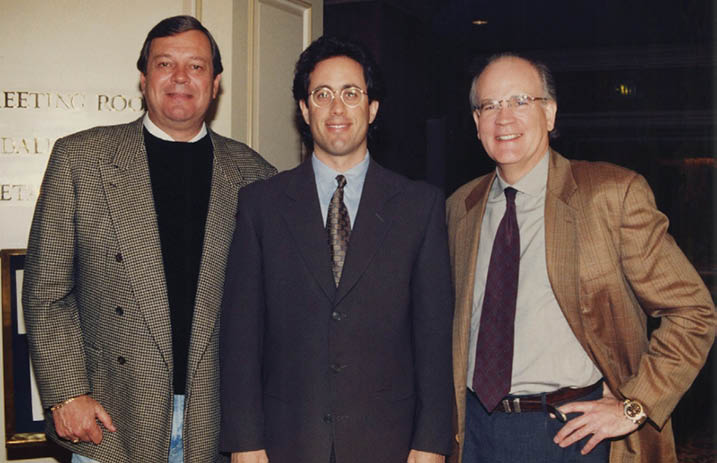

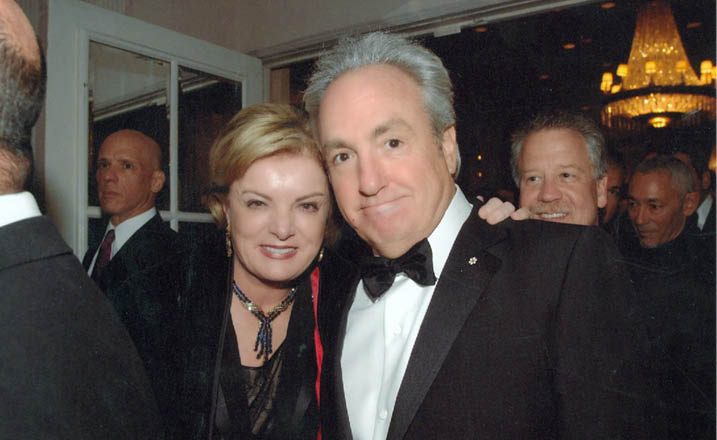
.png)


.jpg)

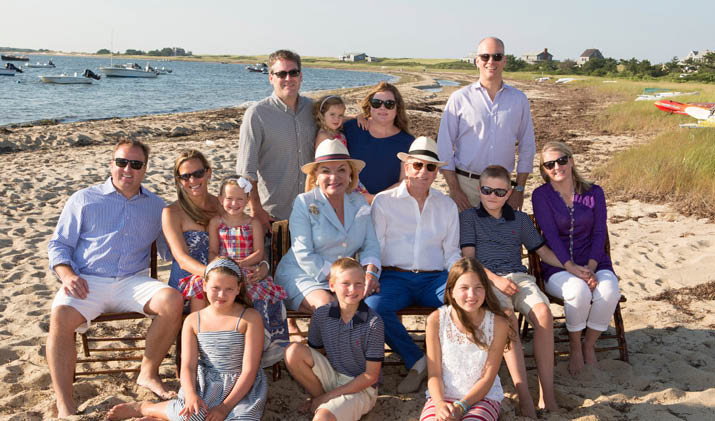
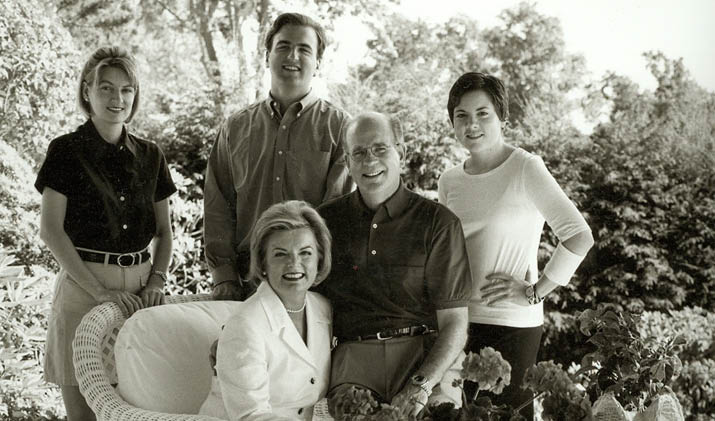

.jpg)
.jpg)

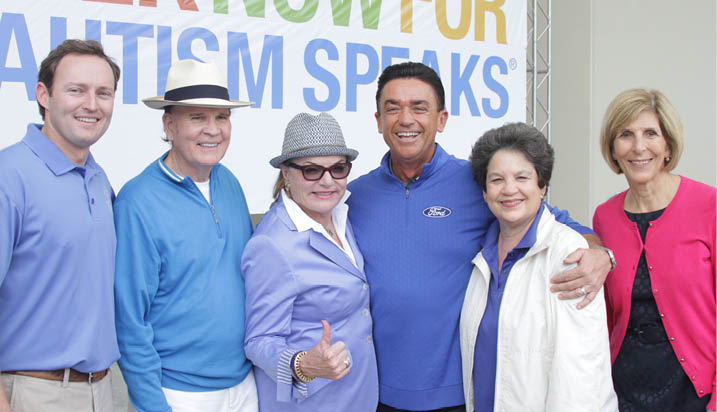

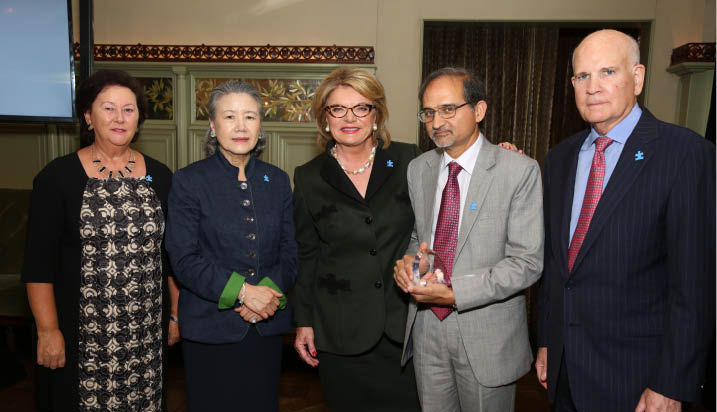
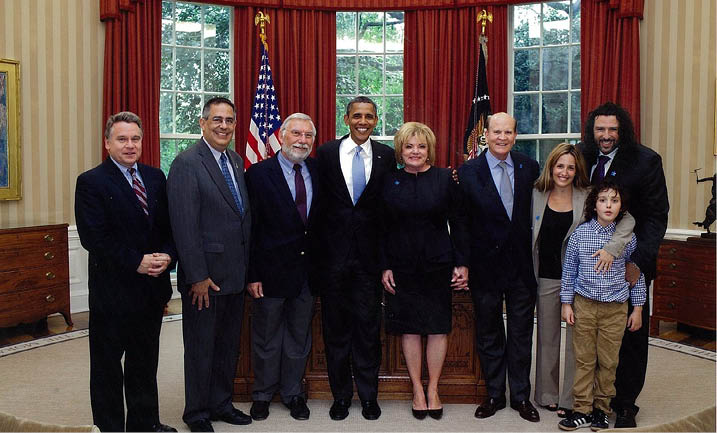
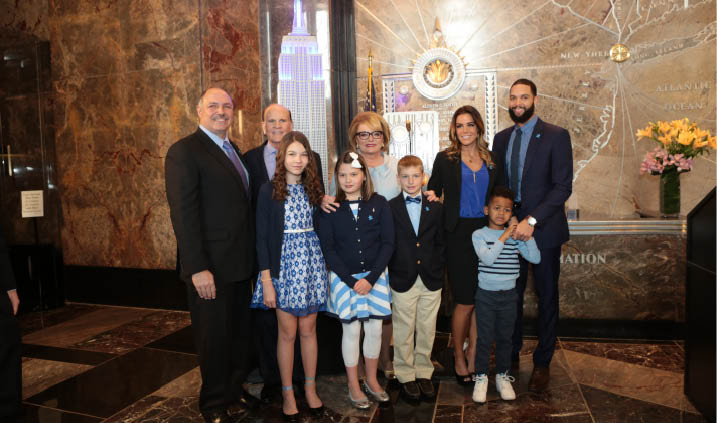

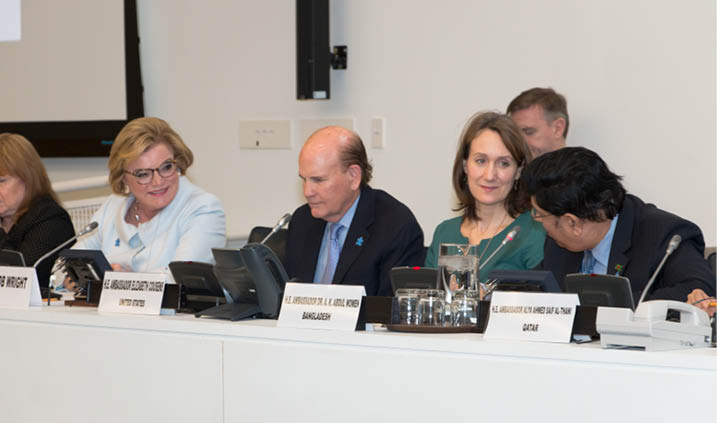
_chapter_23.jpg)